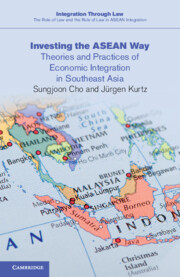This article examines the implications of the Association of Southeast Asian Nations (ASEAN) centrality in East Asian regionalism. It seeks to address the question of how ASEAN created and maintained its central position in East Asian regionalism by managing regional cooperation in general and institution-building in particular. This article addresses the question by relying on the theoretical concept of productive power and tangible attributes associated with the concept. This article makes three arguments. First, ASEAN maintained its central position in East Asian regionalism by exerting productive power that works in generalized and diffuse social processes and through constitutive social relations. Second, the Association developed and employed specific meanings and norms that constituted the foundation for regional cooperation. Third, ASEAN maintained its central position in the complicated Sino–Japanese rivalry by embedding them in constitutive social relations and avoiding exclusive links with each of the two states.
